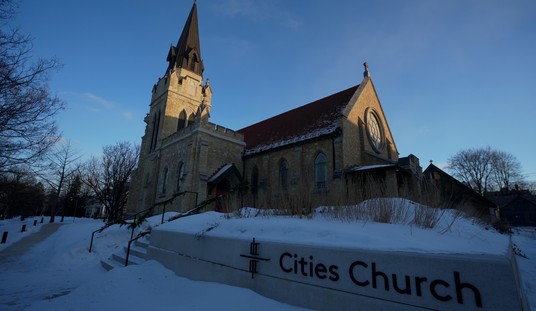At the intersection of law and politics, 2014 brought us continuing legal challenges to President Obama’s stretching of executive authority, including a Supreme Court smackdown of his recess appointments and several other blockbuster Supreme Court decisions. Yet besides those notables, there were no Supreme Court vacancies, and few high-profile fights over lower-court nominees — thanks in large part to Harry Reid’s use of the nuclear option to end judicial filibusters.
To give you a glimpse of what 2015 has in store, I present my annual predictions, beginning at the nation’s highest court:
1. Renewed pressure on Justice Ginsburg to retire
Justice Ruth Bader Ginsburg, who will turn 82 this March, will experience new health problems in 2015, reigniting pressure on her from progressives to retire in time for President Obama to name a replacement. Confirming a nominee as liberal as Ginsburg will be especially difficult in a presidential election year, so progressives will hope for her retirement in 2015, perhaps at the end of the current Supreme Court term.
2. Supreme Court nominations prominent in primary campaign
As the GOP presidential primary campaign heats up later this year, the issue of Supreme Court nominations will be front and center. A GOP president elected in 2016 would likely choose replacements for Justices Kennedy and Scalia — both of whom turn 80 in 2016 — and Justice Ginsburg as well, if she does not retire sooner. Republican primary contenders will boast that they can be relied on to choose a constitutionalist or pro-life Supreme Court nominee.
3. Supremes deal severe blow to ObamaCare
Last year at this time, I predicted that the 2013-14 Supreme Court term would be a big one for conservatives, a prediction proved true by decisions on recess appointments, campaign finance, Obamacare’s contraception mandate, legislative prayer, and abortion protest buffer zones. There will be fewer blockbuster wins for conservatives this term, but no one will notice because of the enormity of the blow the Court will deal to ObamaCare this June in King v. Burwell.
In the two-thirds of states without state-run exchanges, the King decision will gut ObamaCare by ending the employer mandate, subsidies for individuals’ purchase of health insurance, and — for millions of people — the individual mandate as well. Obama and his allies will denounce the Court’s King decision with a ferocity unmatched even by the reaction to Citizens United.
4. President and GOP make a deal on ObamaCare
With ObamaCare largely dismantled by King v. Burwell, both President Obama and the GOP-controlled Congress will recognize a need to pick up the pieces and an opportunity to improve on the post-King status quo from their perspective. The result will be a deal between Obama and Republicans that restores at least the subsidies in exchange for free market reforms — such as allowing interstate competition — and limits on malpractice awards.
5. Gay marriage horse has left the barn
Given that the Supreme Court took a pass on the issue of a constitutional right to gay marriage this past October, there is no guarantee it will tackle the issue now that there’s a circuit split. But assuming the Court does take it up, the justices will rule 5-4 in favor of a federal right to same-sex marriage. Justice Kennedy will not be willing to nullify tens of thousands of gay marriages in states that favor a traditional definition of marriage, nor to mark those marriages as a mistake that should not be repeated by grandfathering them. After all, this is the justice who wrote that the Defense of Marriage Act is unconstitutional because it imposes “a stigma” on same-sex marriages. As I said in October, “the thousands of gay marriages that will result from [taking a pass] … effectively decide the issue.”
6. Obama’s immigration order heads to Supreme Court
In a Texas lawsuit challenging the constitutionality of President Obama’s recent executive order on immigration, the Fifth Circuit will strike down some provisions of that order after finding that the economic harm claimed by the plaintiff states is concrete enough to support standing. Supreme Court review of the order will be highly likely, due either to a circuit split or reasons analogous to why the Court typically reviews circuit court decisions striking down federal statutes.
7. President’s executive overreach accelerates
No longer constrained by upcoming elections and more frustrated than ever by GOP control of both houses of Congress, the president will become even more aggressive in the use of executive actions and agency regulations that essentially rewrite rather than interpret federal statutes. His recent executive action on immigration is just the beginning. The Clean Air Act and ObamaCare will be primary targets. Numerous lawsuits will result. But Obama will feel increasingly immune from legal challenges, many of which won’t be resolved before he leaves office.
8. No resolution of filibuster question
Though much debated, the question of whether the GOP-controlled Senate should restore the judicial filibuster will not come to a head with a Democratic president in office. Democrats have no desire to filibuster Obama’s judicial nominees and Republicans have no need to do it now that contentious nominees can be defeated in the Judiciary Committee or on an up-or-down floor vote. Neither party will have a reason to test and thus decide the issue.
9. Few radicals among judicial picks
Cognizant that Republicans now control the Senate, President Obama will become more moderate in his selection of judicial nominees. He will try to avoid naming controversial nominees in order to maximize the number of judicial confirmations in 2015, before the inevitable confirmation slowdown in a presidential election year kicks in. Expect Obama to put particular focus on vacancies on the few circuit courts that still lack Democratic majorities.









Join the conversation as a VIP Member